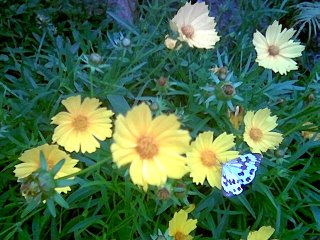
13 June 2006: Tuesday of the 10th Week in Ordinary Time
Matthew 5, 13-16
Note: Though I have a mass today, Rev. William Garcia, the deacon of UP will deliver the homily. But I have something from last year.
First, salt is used as a preservative especially for fish and meat. It prevents food from going bad, and to keep putrefaction at bay. But the most important use of salt is to lend flavor to things. We all know that food without salt is tasteless and even sickening.
Second, light is first of all, something that is meant to be seen. It is used as a guide like the line of lights that marks the plane’s landing, the outline of the harbor or main thoroughfares.
Thus, if we bring these two images together, we can glean that Jesus tells us that our deeds should not only be good, but should reflect the goodness of God. Moreover, our deeds should lend flavor to life. There is a type of Christianity that takes all the vividness out of life, a Christianity that is dark and melancholic. We must discover the lost radiance of the Christian faith. We must show the joy of life, in a depressed world. We must be people of the Resurrection.
I have a story. A water bearer in
But the poor cracked pot was ashamed of its own imperfection, and miserable that it was able to accomplish only half of what it had been made to do. After two years of what it perceived to be a bitter failure, it spoke to the water bearer one day by the stream.
“I am ashamed of myself, and I want to apologize to you.”
“Why?” asked the bearer. “What are you ashamed of?”
“I have been able, for these past two years, to deliver only half my load because this crack in my side causes water to leave out all the way back to your master’s house. Because of my flaws, you have to do all of this work, and you don’t get full value from your efforts,” the pot said.
The water bearer felt sorry for the old cracked pot, and in his compassion he said, “As we return to the master’s house, I want you to notice the beautiful flowers along the path.”
Indeed, as they went up the hill, the old cracked pot took notice of the sun warming the beautiful wild flowers on the side of the path, and this cheered it some. But at the end of the trail, it still felt bad because it had leaked out half its load, and so again it apologized to the bearer for its failure.
The bearer said to the pot, “Did you notice that there were flowers only on your side of your path, but not on the other pot’s side? That’s because I have always known about your flaw, and I took advantage of it.
I planted flower seeds on your side of the path, and every day while we walk back from the stream, you’ve watered them. For two years, I have been able to pick these beautiful flowers to decorate my master’s table. Without you being just the way you are, he would not have this beauty to grace his house.”
We are all cracked pots. We are old, sick, and forgetful. We know our cracks and flaws. But there is indeed a lot of good in us. We can, like salt, make flowers bloom. We can, like light, be like beautiful wild flowers that guide other people’s paths. We can, like salt and light, grace our Lord’s Table.
I would like to believe this is precisely why we are all here: at sunrise, we all come together at morning mass to grace the Lord’s Table.

No comments:
Post a Comment